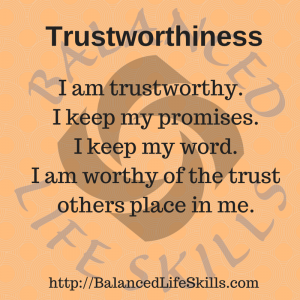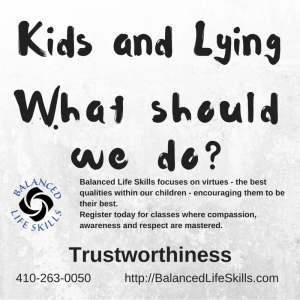The two big questions we all have to answer in regard to trust are as follows:
Who do you trust?
Who trusts you?
Most of us will quickly name the person we trust. We trust them because they have been dependable, they keep their word to us, they have been available for us when we needed them. For most young people they recognize that they really trust their parents.
As a parent or an educator, maintaining that ‘trustworthiness’ is the key to maintaining a connection with any student or child. If they come to believe that they are not able to trust us, the broken connection can be devastating to the young person. In fact they may go through their life with a belief that they can not and should not trust anyone. That is a very lonely existence.
Answering “Who trusts me?” really opens the opportunity to examine ourselves. We have a responsibility of keeping our promises, living up to our word and the values of our family. When we demonstrate our “being on the “team” of our family, both our personal trust of others on the team and their trust in us, continues to grow. We demonstrate our team spirit by building our trustworthiness with others.
Repeat after me:
I am trustworthy.
I keep my promises.
I keep my word.
I am worthy of the trust others place in me.



